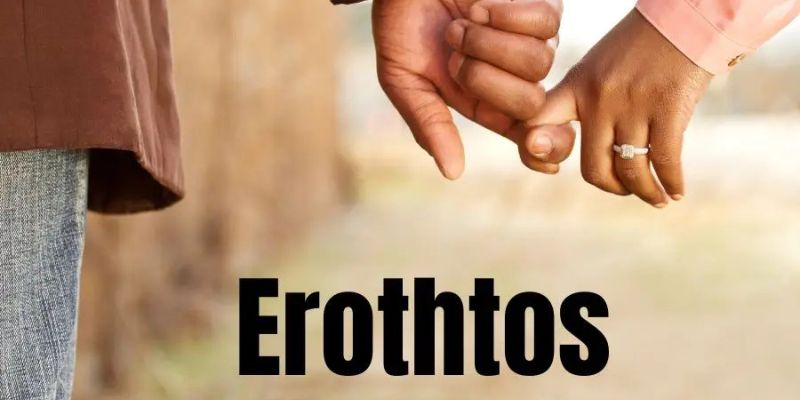Understanding Erothtos: A Unique Exploration of Human Desire
The term “erothtos” may not be widely recognized, but its significance extends across multiple disciplines, including psychology, sociology, and literature. It represents a nuanced exploration of human emotions, particularly those tied to intimacy, longing, and relationships. This article delves deep into the meaning, origins, and societal relevance of erothtos, offering a profound understanding of its role in human connections.
What is Erothtos? A Closer Look at the Concept
To grasp the true essence of erothtos, we must dissect its meaning, historical background, and cultural interpretations. While the term lacks widespread recognition, it resonates deeply with themes of emotional depth, human desire, and relational complexities.
At its core, erothtos encapsulates the emotional interplay between longing and intimacy, making it a critical element in discussions surrounding relationships, romance, and personal identity. It serves as a bridge between psychology, art, and literature, illuminating the intricate nature of human affections and attachments.
The Etymology of Erothtos: Tracing Its Linguistic Roots
Understanding the linguistic foundations of erothtos provides deeper insight into its meaning. While it does not have a direct translation in common languages, linguistic patterns suggest connections to well-known concepts related to desire and affection.
- “Ero” often links to romantic love and eroticism, emphasizing the dimension of passion and physical attraction.
- The suffix “thos” implies a state of being or a condition, similar to words that describe emotional or psychological states.
Thus, erothtos can be interpreted as a state of intense emotional and physical longing, highlighting the delicate balance between passion, attachment, and vulnerability.
Erothtos in Literature and the Arts: A Timeless Exploration
The Romantic Era: Passion and Longing in Poetry
Throughout literary history, themes of love, desire, and intimacy have been prominent. The Romantic era, in particular, serves as a defining period where erothtos found expression through poetry, prose, and art.
Poets such as Lord Byron and John Keats illustrated the intensity of passion and yearning in their works. Their verses encapsulated deep emotional turmoil, longing, and the intricate dance between love and loss—hallmarks of erothtos.
Modern Depictions: Literature and Film
Contemporary literature and media continue to explore erothtos in new ways. From romantic novels to films, expressions of longing, intimacy, and desire remain integral themes.
For instance, E.L. James’ “Fifty Shades” series intricately blends passion with emotional depth, offering a modern depiction of erothtos. Such works reflect evolving societal views on intimacy, self-expression, and human connection in the digital age.
The Psychological Aspects of Erothtos: Desire, Attachment, and Emotional Intelligence
Attachment Theory: How Erothtos Shapes Relationships
The psychological dimensions of erothtos can be analyzed through the lens of attachment theory, developed by John Bowlby and Mary Ainsworth. This theory explains how early relationships influence emotional bonds in adulthood.
- Secure attachment fosters trust, stability, and emotional availability in relationships.
- Insecure attachment (avoidant or anxious) can lead to difficulties in expressing intimacy and emotional dependence.
Understanding erothtos from an attachment perspective helps unravel why individuals experience desire differently and how past experiences shape their approach to love and relationships.
Emotional Intelligence and Erothtos: The Key to Healthy Relationships
Emotional intelligence (EQ) plays a crucial role in managing relationships and understanding erothtos. Individuals with high EQ are more adept at handling intimacy, managing conflicts, and navigating the emotional intricacies of love and desire.
Key components of EQ that influence erothtos include:
- Self-awareness: Recognizing personal emotions and how they affect relationships.
- Empathy: Understanding and responding to the emotions of others.
- Emotional regulation: Managing feelings to maintain healthy connections.
Developing emotional intelligence can enhance one’s ability to cultivate meaningful and lasting relationships, reinforcing the essence of erothtos.
The Cultural Significance of Erothtos: Perspectives from Around the World
Diverse Cultural Interpretations of Desire and Intimacy
Cultural attitudes toward erothtos vary significantly across societies. While some cultures celebrate openness in discussing intimacy and relationships, others impose strict norms that shape personal experiences of desire.
- Western cultures often promote individualism, emotional expression, and open discussions about love and sexuality.
- Eastern traditions, particularly in regions with conservative values, may emphasize restraint, duty, and societal expectations in romantic relationships.
- Indigenous cultures integrate love and intimacy into spiritual and communal traditions, viewing them as fundamental aspects of human existence.
By understanding cultural perspectives on erothtos, we gain a richer appreciation for the diversity of human relationships across different societies.
How Technology Has Transformed Erothtos in the Digital Age
Online Dating and Social Media: The New Frontier of Intimacy
The rise of technology and social media has revolutionized the way people experience erothtos. Online dating platforms, instant messaging, and virtual interactions have introduced new avenues for forming connections but have also added complexity to modern relationships.
Benefits of technology on erothtos:
- Facilitates connections across distances.
- Provides platforms for self-expression and emotional exploration.
- Encourages openness in discussing intimacy and relationships.
Challenges:
- Increased superficiality and reduced emotional depth in interactions.
- Greater exposure to misrepresentation and deception.
- The paradox of choice, leading to difficulties in commitment and emotional investment.
Conclusion: Embracing the Complexity of Erothtos
Erothtos is a multifaceted concept that encompasses the interplay of desire, emotion, and intimacy in human relationships. It is deeply embedded in literature, psychology, and cultural traditions, reflecting the universal nature of human longing and connection.
By understanding erothtos, individuals can cultivate healthier relationships, enhance their emotional intelligence, and navigate intimacy with greater self-awareness. As society continues to evolve, so too will our interpretations of desire, love, and the bonds that unite us.
Frequently Asked Questions (FAQs)
What is the meaning of Erothtos?
Erothtos refers to the complex emotional and psychological experiences associated with desire, intimacy, and longing. It highlights the interplay between passion, attachment, and human relationships.
Is Erothtos the same as eroticism?
While erothtos shares linguistic roots with eroticism, it is a broader concept. It encompasses emotional and psychological aspects of desire, rather than just physical attraction.
How does Erothtos relate to modern relationships?
Erothtos is deeply relevant to contemporary relationships, influencing how individuals experience love, emotional attachment, and intimacy in a rapidly changing world.
What role does emotional intelligence play in Erothtos?
Emotional intelligence (EQ) helps individuals navigate the complexities of erothtos by fostering self-awareness, empathy, and effective communication in relationships.
How has technology affected Erothtos?
The digital age has transformed erothtos by altering how people connect, express emotions, and form relationships. While it has made intimacy more accessible, it has also introduced new challenges in maintaining deep, meaningful connections.
By exploring the depths of erothtos, we gain valuable insights into the nature of human desire, enriching our understanding of relationships and emotional well-being in an ever-evolving world.


